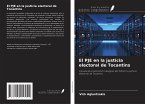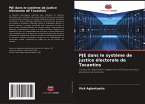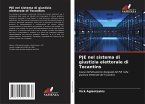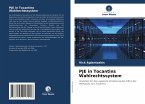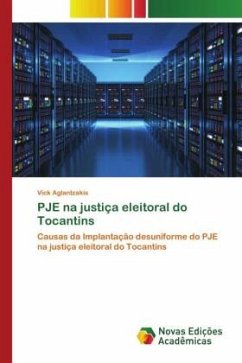The technological revolution conformed in the use of electronic systems for the processing of lawsuits in the Courts that make up the Brazilian Judiciary has occurred at different times, asynchronously, through different platforms, which end up promoting a myriad of different procedures of access and operability, generating, many times, the lack of uniformity in the implementation process and in the operationalization of the systems used, compromising the jurisdictional provision and access to justice. Such situations are evidenced in the course of the implementation of PJe in the Electoral Justice and are embodied in the research that resulted in this dissertation which aims to understand the context and the causes that hinder the effective standardization of the electronic judicial process, beyond its implementation, contemplating, especially, the operability of the PJe system by the servers that use it.


